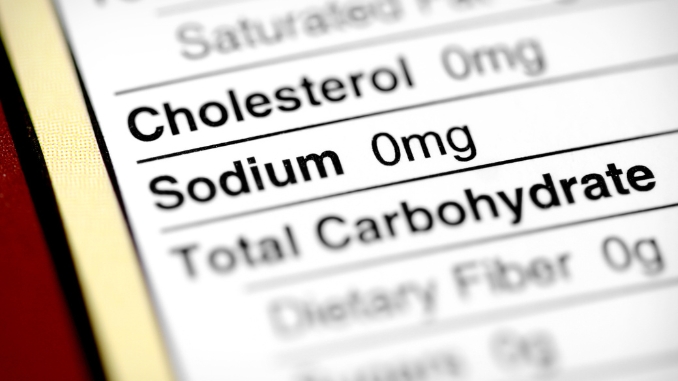Taking Control: The Importance of Meniere’s Disease Diet and Lifestyle

Last updated on April 3rd, 2025 at 05:49 pm
Ménière's disease is a significant health challenge, with a lifetime prevalence estimated at 34 to 190 cases per 100,000 individuals. Moreover, it was reported that approximately 615,000 Americans have been diagnosed with the condition, with 45,500 new cases annually. Its symptoms, including vertigo, hearing loss, and tinnitus, can profoundly disrupt daily life. Fortunately, 90 to 95 percent of patients can effectively manage their Ménière's disease through lifestyle modifications like the Meniere’s Disease Diet and specialized care targeting the inner ear, offering hope for an improved quality of life. Let’s look into this hope for individuals dealing with the disease.
What is Meniere’s Disease?
Ménière's disease is a chronic inner ear disorder characterized by a set of distressing and often unpredictable symptoms. These symptoms include:
- recurrent episodes of vertigo, a sensation of spinning
- imbalance
- fluctuating hearing loss
- tinnitus
- a feeling of fullness or tension in the affected ear
These episodes, referred to as “attacks,” can last anywhere from 20 minutes to several hours and can be accompanied by nausea and vomiting.
The exact cause of Meniere's disease is not thoroughly understood, but it is believed to involve abnormal fluid levels in the inner ear, which can lead to increased pressure and damage to delicate structures responsible for hearing and balance. It can affect individuals of all ages but is most commonly diagnosed in people between fifty and sixty years old.
How to Treat Meniere’s Disease?
Meniere's disease management focuses on reducing the frequency of attacks, alleviating symptoms, and safeguarding the long-term health of the hearing and balance structures. The treatment arsenal includes:
- lifestyle adjustments
- diuretics
- vasodilators
- corticosteroids
- intratympanic therapy
- surgical interventions
Typically, the initial approach involves dietary modifications and lifestyle changes, encompassing salt restriction, caffeine and alcohol intake reduction, and stress and anxiety management, in addition to various medications.
Although Meniere's disease lacks a definitive cure and can progress with sensorineural hearing loss over time, more than 85% of patients have reported improvements through the implementation of lifestyle changes and a combination of medical or surgical treatments.
Dietary changes, including the adoption of a low-sodium diet, the avoidance of alcohol and caffeine, are frequently recommended for individuals grappling with Meniere's disease. These dietary modifications have shown clinical efficacy in curbing the progression of the disease, providing significant relief for affected individuals.
In a study assessing the feasibility and willingness of individuals with Meniere's disease to adhere to a reduced sodium and caffeine-free diet as a vertigo management strategy, it became evident that nutrition can certainly play an essential role in the treatment of this condition.
Meniere’s Disease Diet
1. Low Sodium Diet
A low-salt diet for Meniere's disease is crucial because excessive salt intake can lead to fluid retention in the inner ear, potentially worsening symptoms. The recommended daily intake of 1,500 to 2,000 milligrams of sodium is substantially lower than the average American's salt consumption.
To adhere to this diet, individuals must be mindful of food labels, opt for fresh, unprocessed foods, and avoid high-sodium items such as fast food, processed snacks, and canned soups. Reducing sodium intake can also help maintain a more stable fluid balance within the inner ear, ultimately contributing to managing and reducing vertigo attacks, a key goal in Meniere's disease treatment.
2. Potassium-Rich Foods
Potassium is also a vital electrolyte that regulates fluid balance in and around cells. Maintaining the proper fluid balance in the inner ear is crucial for normal hearing and balance function. Meniere's disease is believed to involve abnormalities in the fluid pressure of the inner ear, which can contribute to symptoms like vertigo and pressure changes.
3. Caffeine Reduction
For individuals with Meniere's disease, reducing or eliminating caffeine from their diet can be a valuable component of symptom management. Caffeine is typically found in coffee, tea, chocolate, energy drinks, and some soft drinks. While caffeine's impact can vary from person to person, it is known to stimulate the nervous system, affecting the inner ear. It can trigger or worsen symptoms in some individuals.
The stimulant properties of caffeine can potentially lead to increased inner ear pressure and exacerbate vertigo, tinnitus, and other Meniere's disease symptoms. Therefore, limiting or avoiding caffeine helps mitigate the likelihood of symptom flare-ups and improve the overall quality of life for those living with the condition.
4. Alcohol Limitation
Alcohol limitation is integral to Meniere's disease management due to its potential to disrupt inner ear fluid balance, making symptoms worse and increasing the risk of vertigo attacks. Reducing or abstaining from alcohol is often recommended by healthcare providers as part of a comprehensive treatment plan. Beyond symptom control, alcohol restriction offers wider health benefits, safeguarding against alcohol-related health issues and promoting overall well-being.
5. Balanced Diet
A balanced diet comprising various food groups, such as fresh fruits, vegetables, whole grains, lean proteins, and healthy fats, supports general health and can help manage coexisting health conditions that may worsen Ménière's symptoms.
Maintaining an optimal weight and good nutrition can positively impact your overall well-being. Downsizing your processed foods intake can also help manage Meniere's disease symptoms by limiting your salt, caffeine, and MSG (monosodium glutamate) consumption.
6. Hydration
Staying well-hydrated is essential to maintain proper fluid balance in the inner ear. Dehydration can disrupt this balance and potentially worsen symptoms. Drinking an adequate amount of water throughout the day is crucial for overall health and Ménière's symptom management.
Beneficial Lifestyle Modification for Meniere’s Disease
1. Stress Reduction
Stress is a well-documented trigger for Meniere's disease attacks. Stress-reduction techniques like meditation, deep breathing exercises, yoga, or mindfulness can help manage stress and anxiety. These practices promote relaxation, reduce the risk of symptom exacerbation, and enhance overall well-being.
2. Regular Exercise
Engaging in regular, low-impact exercise offers multiple benefits for those with Meniere's disease. Exercise improves cardiovascular health, supports overall physical fitness, and can help manage symptoms. Consult your healthcare professional to determine an appropriate exercise routine tailored to your specific needs and limitations.
3. Adequate Sleep
Prioritizing quality sleep is vital for overall well-being. It plays an important role in regulating various bodily functions and can influence the severity of Meniere's disease symptoms. Establishing a consistent sleep plan and making a sleep-conducive environment can also enhance sleep quality and, in turn, symptom management.
4. Avoid Triggers
Identifying and avoiding personal triggers for your Meniere's disease symptoms is also essential. Avoid foods, environmental factors, or lifestyle habits that make symptoms worse. By recognizing and preventing these triggers, you can reduce the frequency and severity of attacks.
5. Safety Measures
During vertigo attacks, it's paramount to ensure your safety. Activities that could be hazardous, like driving or operating heavy machinery, should be avoided. Implementing safety measures prevents accidents and injuries during these episodes.
6. Supplement Management
Some individuals find relief from Meniere's disease symptoms by incorporating specific supplements, such as magnesium or vitamin B6, into their daily routine. These supplements should be used under the guidance of a healthcare provider, as they can have varying effects and interactions with other medications.
7. Support Network
Building a support network with family and friends or a Meniere's disease support group is also vital. Living with this condition can be challenging, emotionally and physically. Having a support network provides emotional support, understanding, and encouragement during difficult times.
8. Regular Check-ups
Consistent check-ups with your healthcare provider or ear specialist are also crucial for managing Meniere's disease. They help monitor your condition, track progress, and ensure that you follow the recommended treatment plan, including medication, dietary adjustments, and other therapies. Regular check-ups are an integral part of effective management.
Regular check-ups for complementary therapy in Meniere's disease are also crucial to monitor progress, adjust treatment plans, and optimize symptom management for individuals, contributing to an improved quality of life.
Conclusion
Maintaining a good diet and adopting lifestyle changes can significantly lessen the risks and alleviate the impacts of Meniere's disease, which can disrupt daily life. Dietary adjustments like reducing salt and limiting caffeine and alcohol, alongside a health-conscious nutrition approach or Meniere's Disease Diet, help regulate symptoms and improve quality of life. Equally crucial are lifestyle alterations: managing stress, regular exercise, ample sleep, and identifying triggers decrease attack frequency and severity, enabling a more fulfilling life. Support networks and regular healthcare check-ups aid holistic management, providing necessary care, guidance, and also emotional support. Committing to these modifications enhances well-being, offering hope and resilience in navigating this challenging condition.
Find out how to get rid of dangerous inflammation before it ruins your health in this informative master guide. You could quickly start looking and feeling younger! Check out this Master Guide to Inflammation now!
Rick Kaselj MS, is a leading kinesiologist and injury specialist as well as co-creator of the best-selling Unlock Your Hip Flexors program. Rick creates exercise programs that help people heal injuries and eliminate pain, so they can go back to living a full, active, healthy life.













